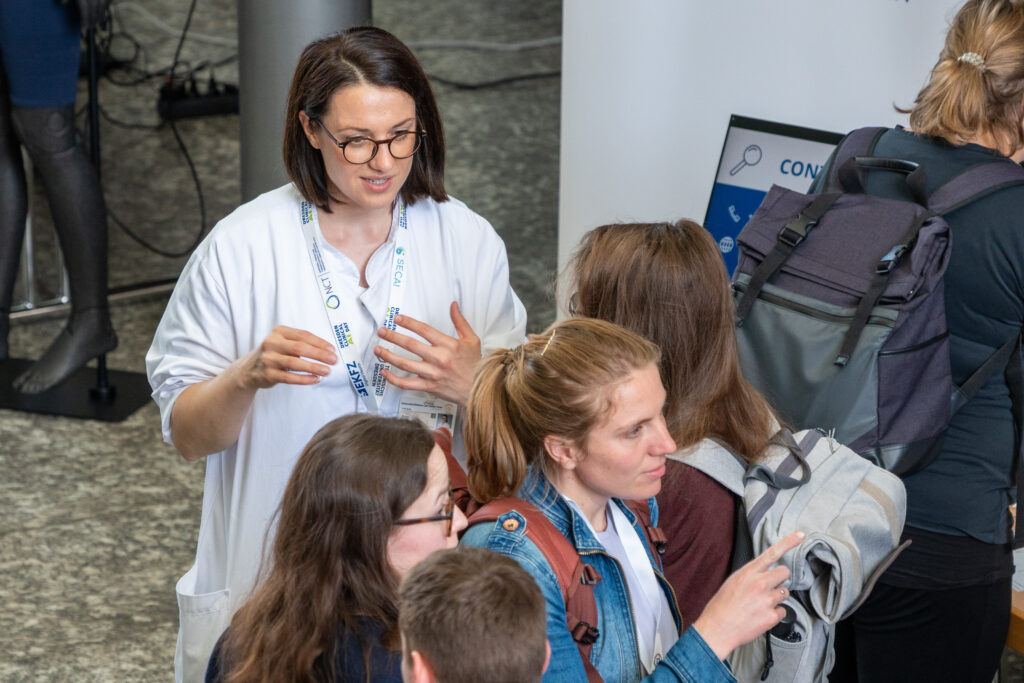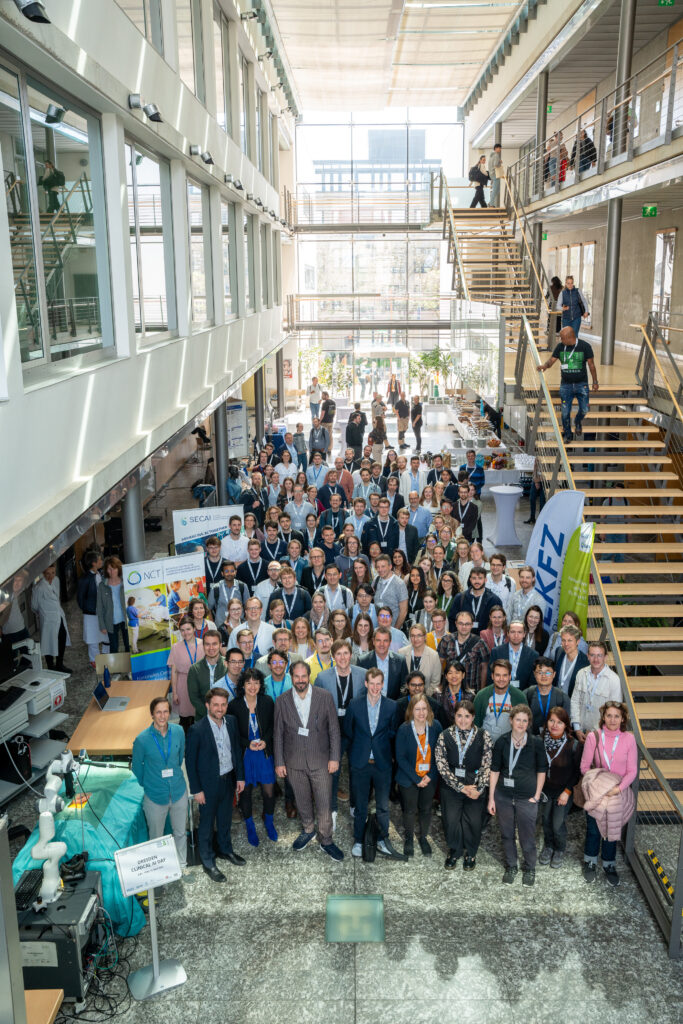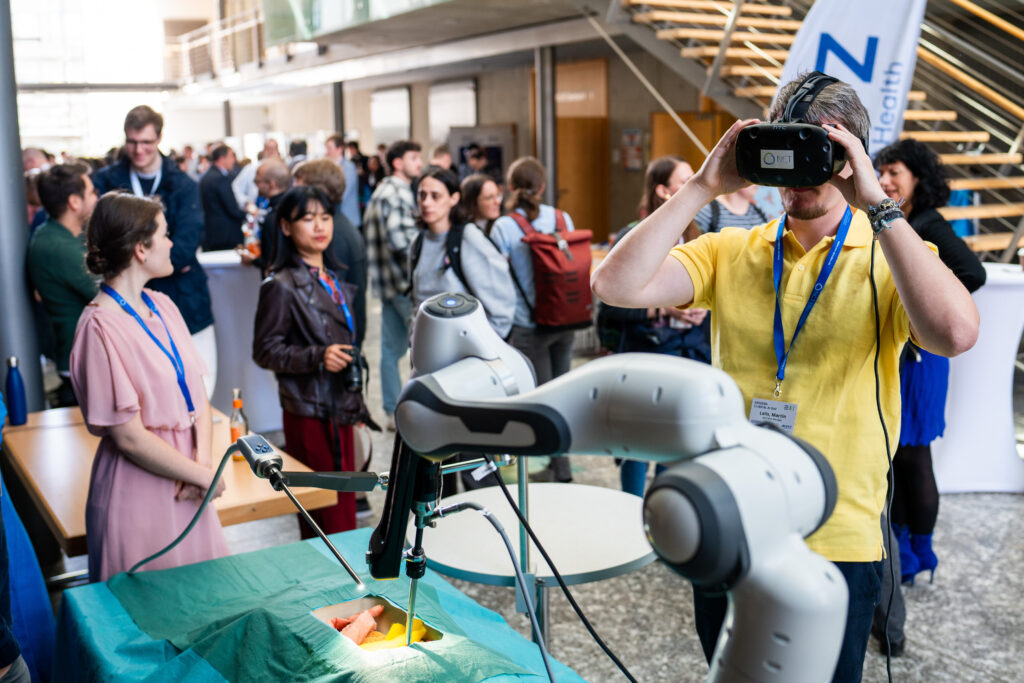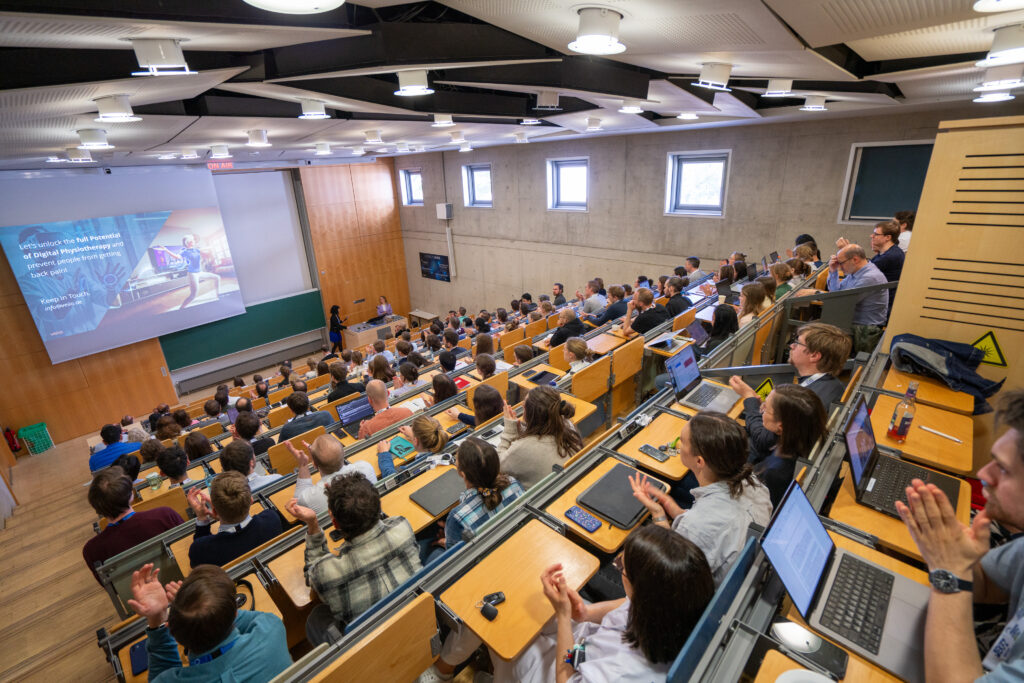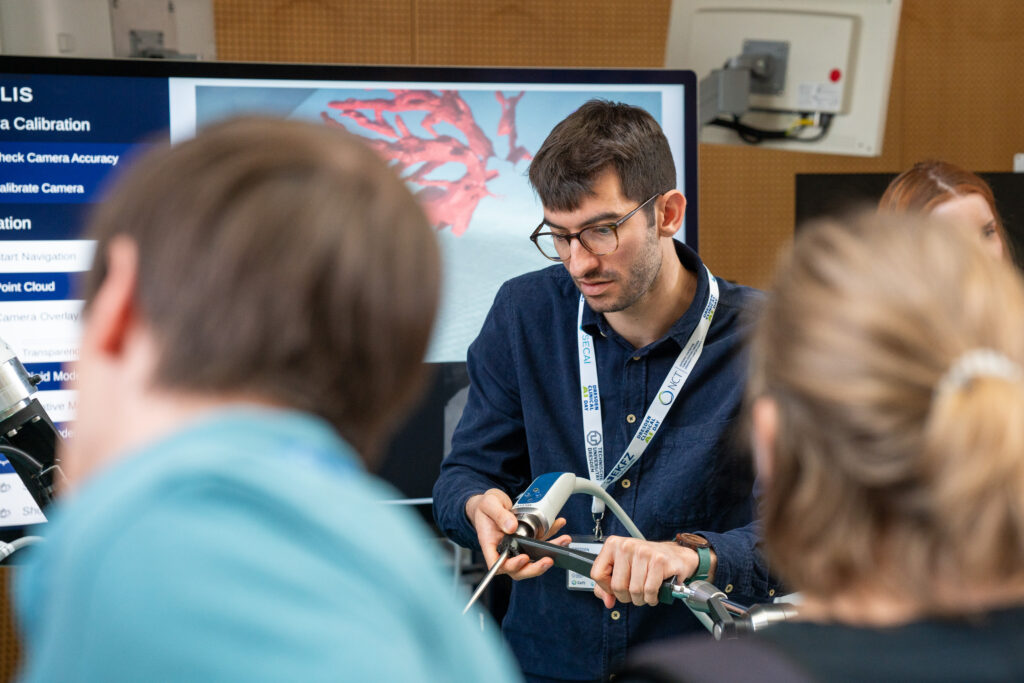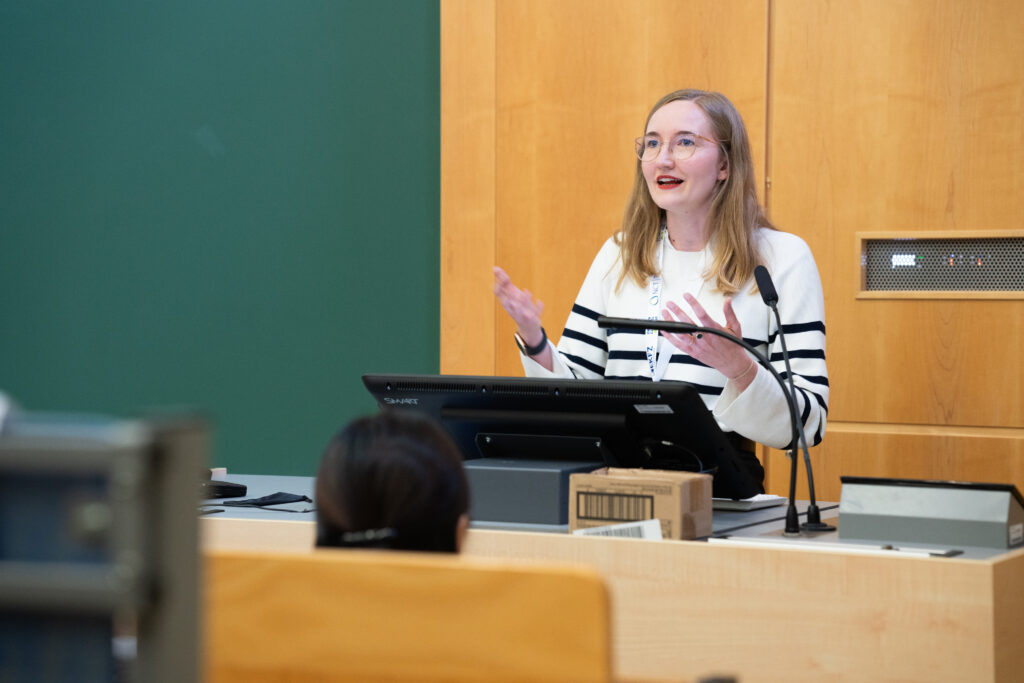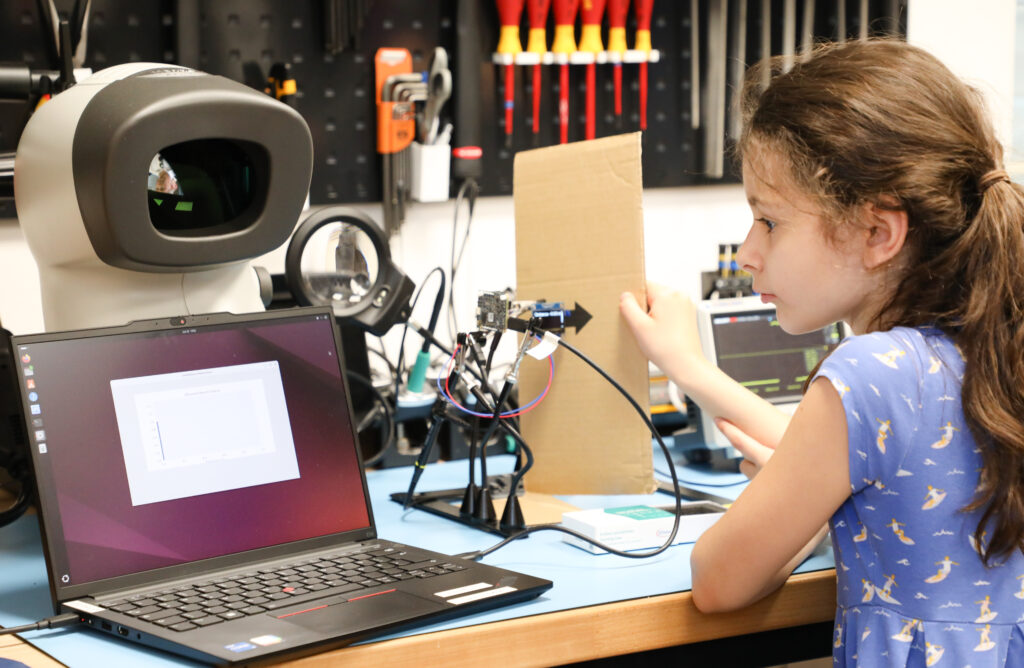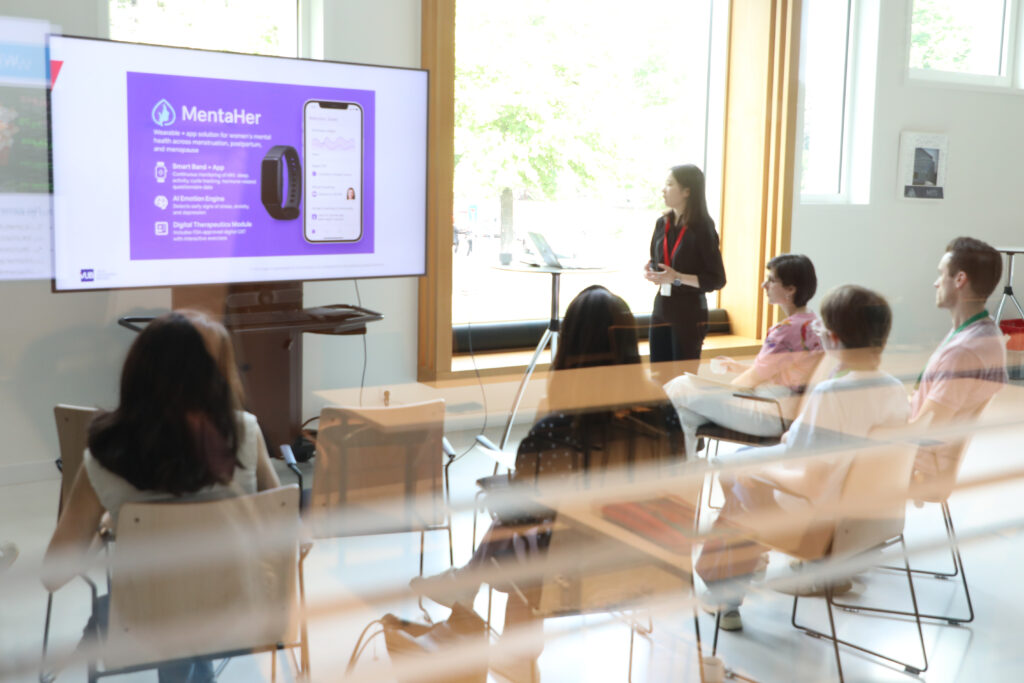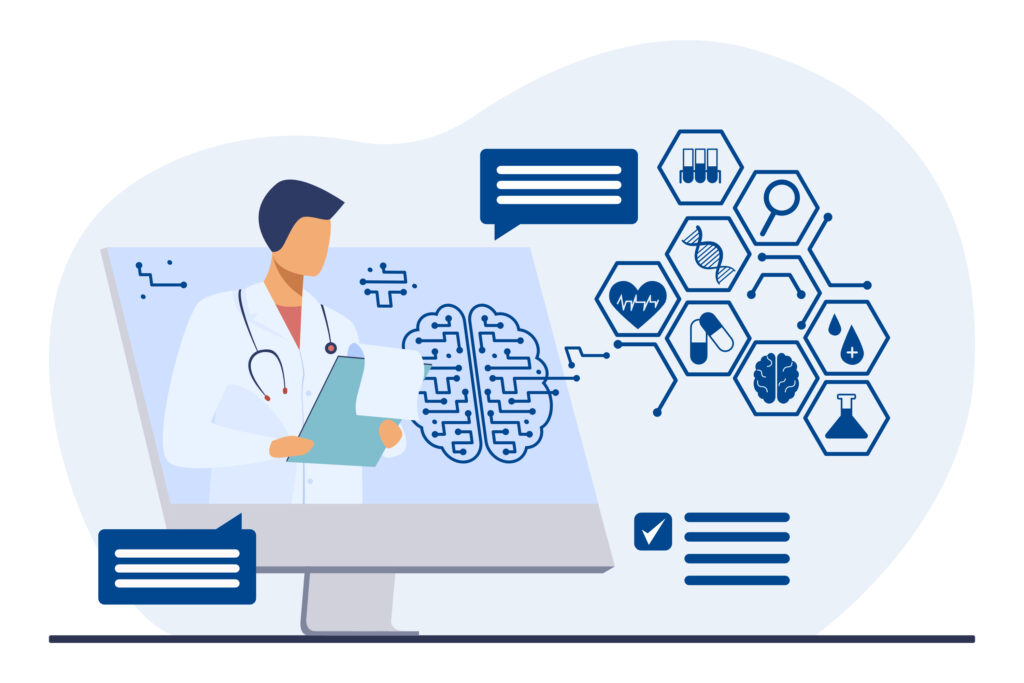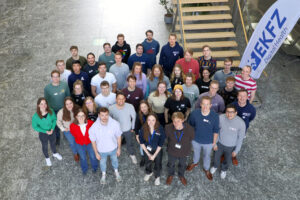AI-based software is already being used in many clinical areas to make earlier diagnoses, provide faster test results or assist in surgical procedures. On the campus of Dresden University of Medicine and in various projects funded by the German Ministry of Health, such as SurgOmics and Deep Liver, numerous experts are researching how various AI applications can be used in everyday clinical practice. The Clinical AI Day provided a platform for this interdisciplinary research to exchange and present research results and demonstrators.
This networking event, initiated by Prof. Stefanie Speidel (NCT National Center for Tumor Diseases Dresden) and Prof. Jakob N. Kather (EKFZ for Digital Health), brought together around 150 participants from the clinical and scientific communities on campus. Representatives from the German Ministry of Health (BMG) provided insights into the BMG’s current digital policy initiatives. The day’s presentations and discussions highlighted how AI technologies can help to improve and personalize medical care, and the challenges that still need to be overcome.
At various exhibition stands, visitors were given insights into the latest developments and applications of AI in the clinic and were able to test some demonstrators themselves, including:
- SurgOmics: enables the live processing of laparoscopic video data using machine learning methods. This allows important features to be extracted, such as the degree of bleeding during an operation. This relevant information can then be immediately forwarded to the medical team via push messages.
- EndoMersion: A demonstrator for robot-assisted surgery in combination with virtual reality. This enables remote surgical applications and expert consultations.
- veiioSense: With over 80 million treatments per year, physiotherapy is one of the most personnel-intensive areas of medical care. The interdisciplinary project veiioSense is researching an AI-supported, digital physiotherapy assistant that supports patients with back pain just as well as a physiotherapist with exercises at home by means of an intelligent shirt with vibration feedback for movement correction.
The event was sponsored by: Else Kröner Fresenius Center for Digital Health, Center for Tactile Internet with Human-in-the-Loop (CeTI) and School of Embedded Composite Artificial Intelligence (SECAI).


